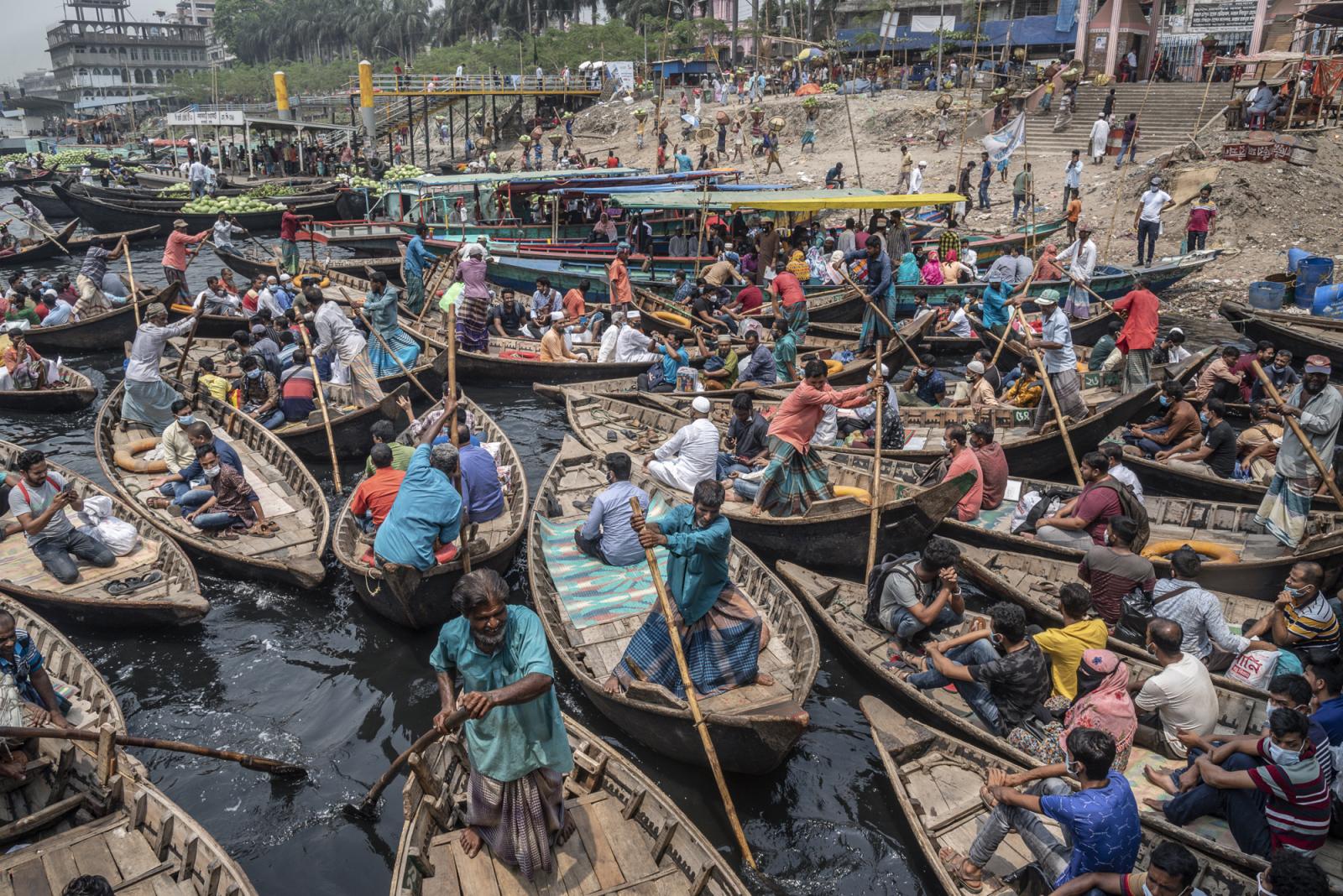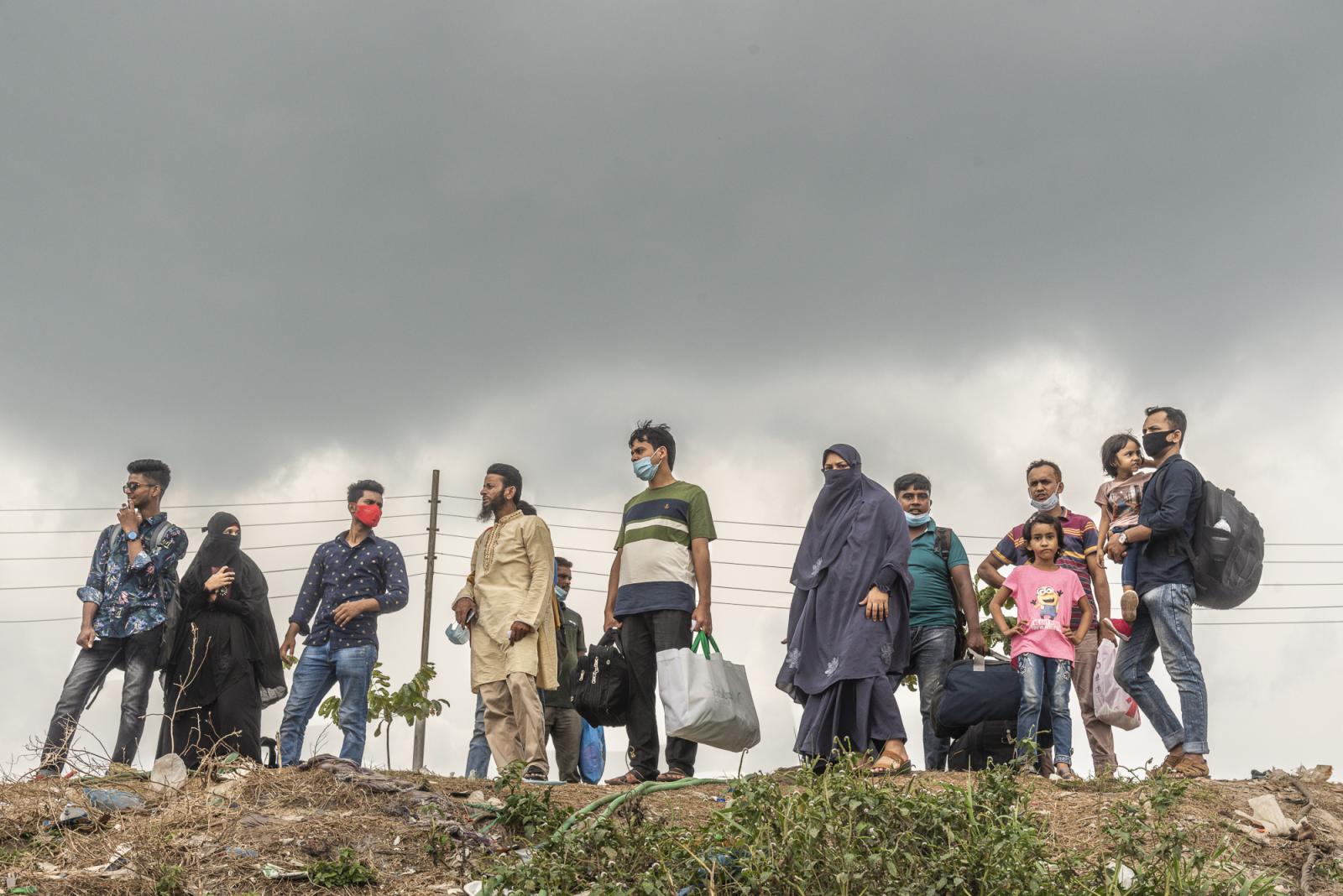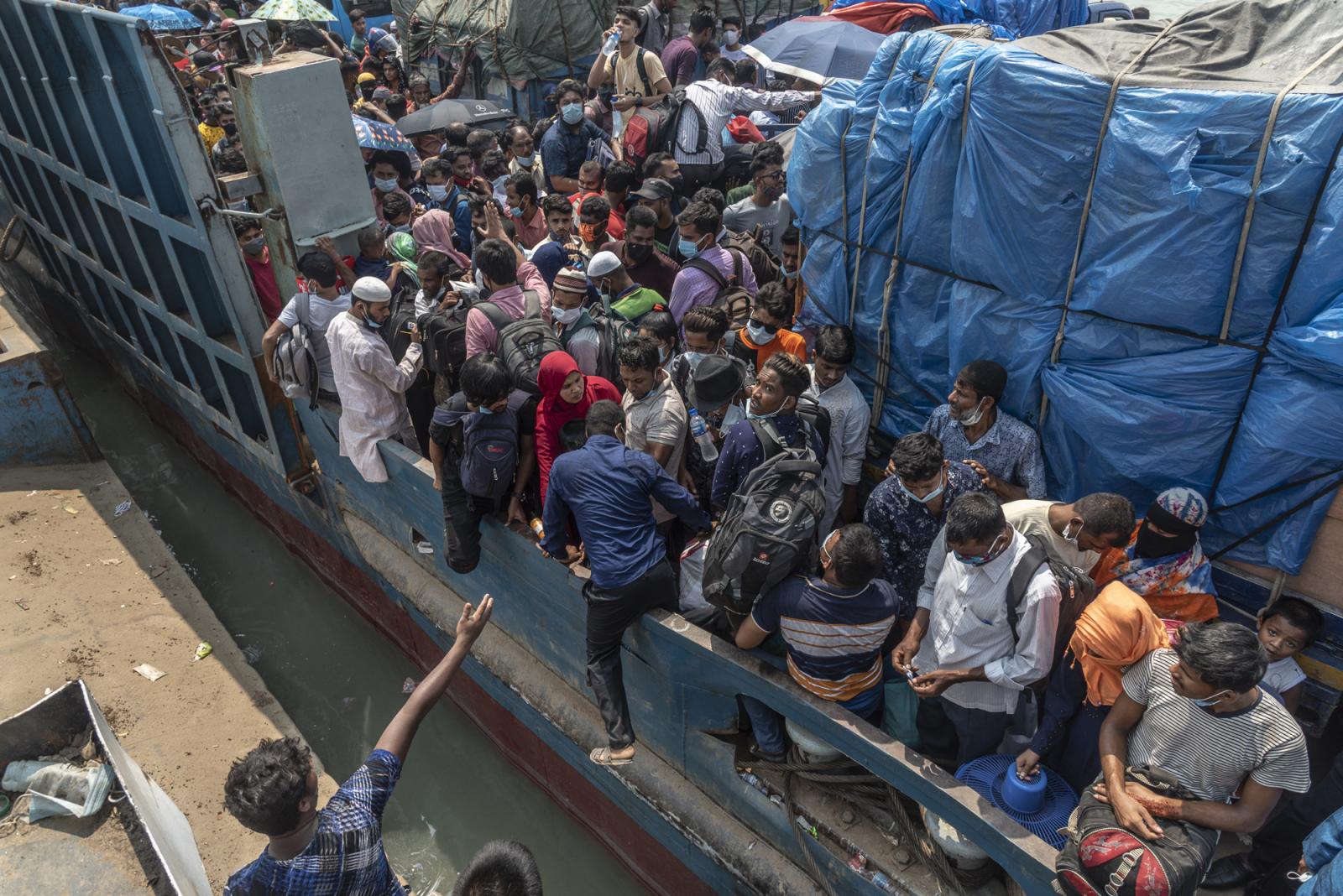Public Story
Dhaka, the ritual of chaos
Summary
When the Bangladesh government declared a national lockdown, staying home was impossible for millions because observing this norm meant to die of starvation, not being able to bring food home, or to pay rent. Thousands lost their jobs, prompting a massive return from the city to the provinces of the country where they came from. Despite this, Dhaka did not stop and the usual chaos of the city continued during the pandemic: hospitals and cemeteries could not cope.
The recommendations issued by international health organizations for the prevention of the COVID19 pandemic turned out to be the reflection of a privilege that a large part of the world could not afford. In Dhaka, the capital of Bangladesh, one of the most densely populated countries in the world, these measures proved to be ineffective.
Social distancing, lockdown, and other preventive measures prove very difficult to accomplish in a country in which three-quarters of the 168 million inhabitants live in conditions of poverty and overcrowding. According to the latest Labor Force Survey from the Bangladesh Bureau of Statistics (BBS), 85% of the economically active population is informally employed, without social security, and surviving on wages that barely allow them to survive. The median income for a family of 4 is between 3 and 4 USD a day to cover most of their expenses.
When the government declared a national lockdown, staying home was impossible for millions because observing this norm meant to die of starvation, not being able to bring food home, or to pay rent. Thousands lost their jobs, prompting a massive return from the city to the provinces of the country where they came from. Despite this, Dhaka did not stop and the usual chaos of the city continued during the pandemic: hospitals and cemeteries could not cope.
The same thing happened with the vaccination campaign; the shortage and weakness of the public health system made vaccination a big struggle for the population. Thousands of men and women formed long queues in adverse weather conditions and improvised places with extremely poor care for the administration of vaccines. As of December 2021, around 70% of the adult population has not received the two compulsory doses of the vaccine.
Las recomendaciones emitidas por los organismos internacionales de salud para la contención de la pandemia para COVID19 resultaron ser el reflejo de un privilegio que una gran parte del mundo no se puede permitir. En Dhaka, la capital de Bangladesh, uno de los países más densamente poblados del mundo estas medidas resultaron ineficientes.
De los 168 millones de habitantes del país, tres cuartas partes viven en condiciones de pobreza y hacinamiento, por lo que la distancia social, el confinamiento y otras medidas de prevención fueron difíciles de cumplir. Según la última Encuesta de Fuerza Laboral de la Oficina de Estadísticas de Bangladesh (BBS), el 85% de la población económicamente activa está empleada de manera informal, sin seguridad social y sobreviviendo con salarios que apenas ayudan a la sobrevivencia. El ingreso medio de una familia de 4 es entre 3 y 4 dólares diarios para cubrir la mayoría de sus gastos.
Cuando el gobierno declaró un “lockdown” nacional, quedarse en casa resultó imposible para millones, porque hacerlo significaba la imposibilidad de llevar la comida a casa o pagar la renta. Miles perdieron sus empleos, lo que propició un retorno masivo de la ciudad a las provincias del país de donde provenían. A pesar de ello Dhaka no se detuvo y el caos habitual de la ciudad continuó durante la pandemia: hospitales, cementerios, no se dieron abasto.
Con la campaña de vacunación sucedió lo mismo; la escasez y la debilidad del sistema público de salud propició que vacunarse se convirtiera en otra batalla para la población. Miles de hombres y mujeres formaron largas filas en condiciones climáticas adversas, en lugares improvisados y con pocos cuidados para la aplicación de las vacunas. Hasta diciembre de 2021 alrededor del 70% de la población adulta no contaba con el esquema completado.



























